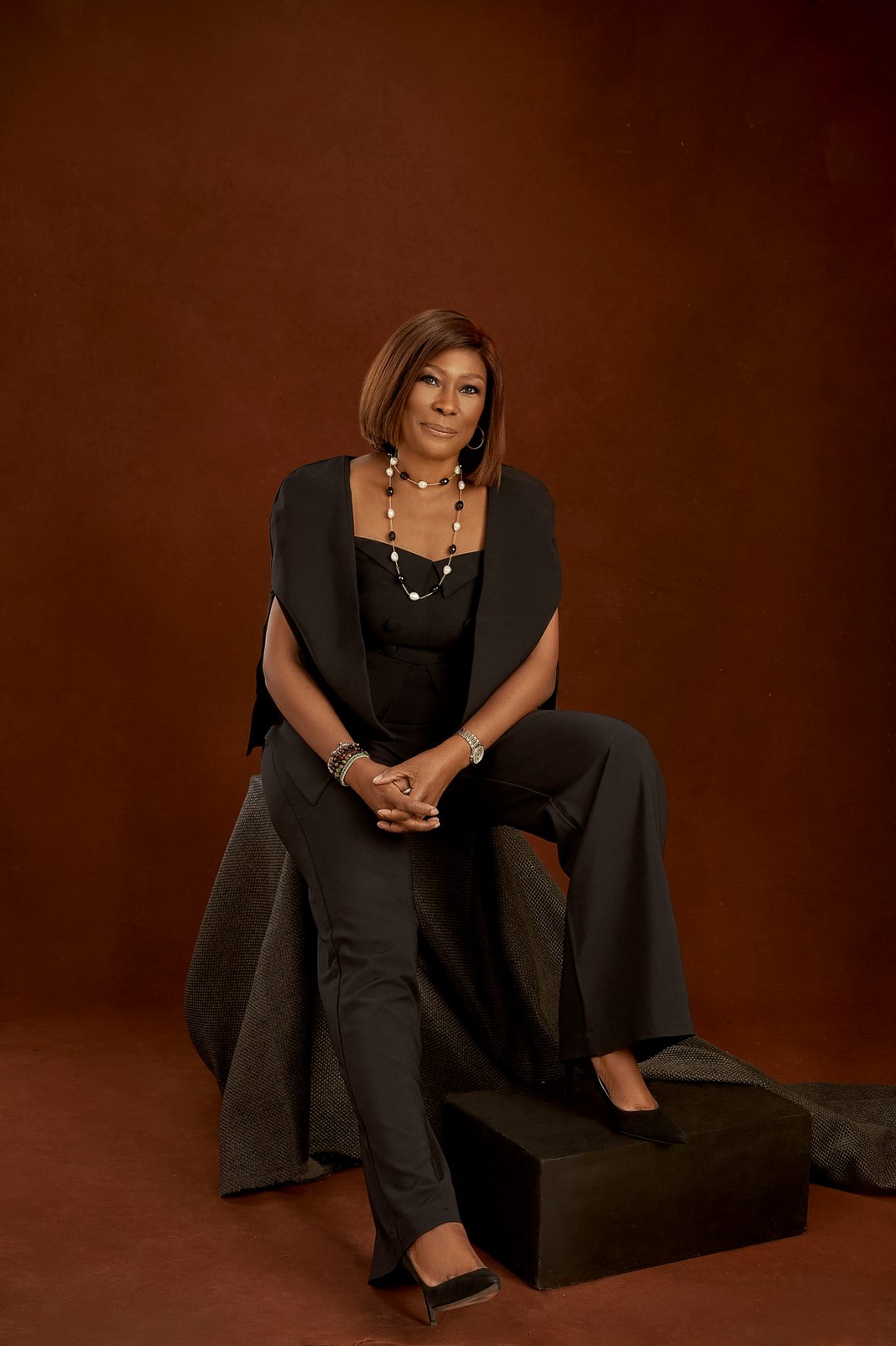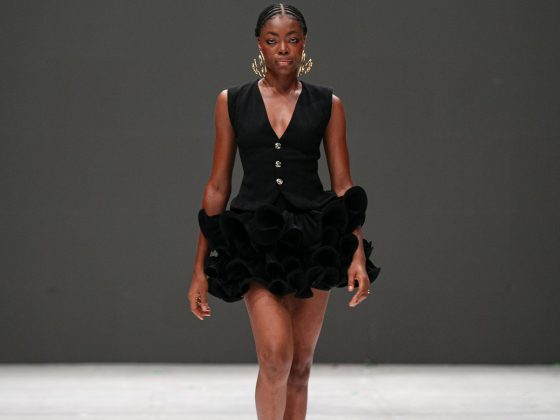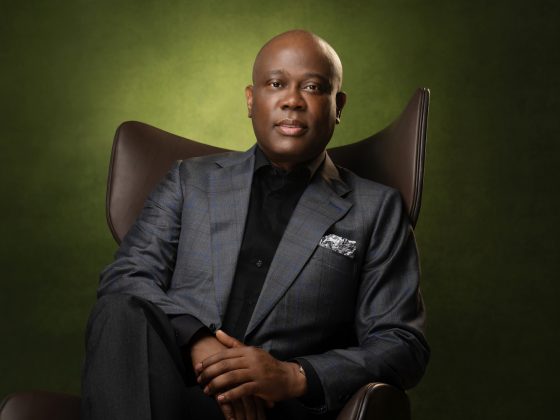Olatowun Candide-Johnson is a powerhouse of dedication and tenacity, channelling over three decades of expertise in corporate and commercial law, business development, and governance into the entrepreneurial realm. She stands at the helm of Gaia Africa, a sanctuary she crafted for distinguished and enterprising women—a place where they can connect, conduct business, invest, and foster robust work-life alliances. Her leadership at Gaia Africa is more than just running a club; it’s a movement propelling women to the vanguard of the business world and reshaping the corporate landscape.
In this interview, Candide-Johnson unveils the strides Gaia Africa has made under her guidance over the past five years. She delves into the nuances of women’s roles in business with a candour that’s as refreshing as it is insightful, painting a vivid picture of the club’s journey and its profound impact on its members. This is a tale of more than just business—it’s about carving a space where women’s voices and talents are amplified, their achievements are celebrated, and their collective power is unstoppable.

You have worked many years as a corporate and commercial lawyer in multinational corporations’ business development and governance. Tell us what your experience led to setting up and establishing GAIA AFRICA, a private members business club for women.
I observed that successful women were not connecting for business, even though they connected on many other levels. This meant that there was a gap. It was and still is important for women to connect and build trust, and once that is established, anything is possible. It is important for women to talk about what they do when they connect. Without this, it is difficult to understand if there are any synergies to unearth, but when we know, the magic happens.
I worked in corporate organisations for more than 20 years, but it was only after I turned that page and tried to raise funds for my first project that I realised two things: (1) the importance of people: without a network, it is very hard to do anything. (2) the dearth of women investors: I didn’t come across any women investors when I was trying to raise money, and even though there must have been such women in 2017, they were hardly visible.
So, my journey, even outside the corporate world, continues to prove the necessity of my present mission.
Who is an ideal GAIA woman, and what are the criteria for joining GAIA Africa?
The ideal GAIA Woman is experienced, culturally, and socially cosmopolitan and is a female leader who has achieved impact and success in her chosen field. She is open to giving and receiving knowledge and is looking to expand her impact while ensuring she is truly “living” with peers who understand her. She is an experienced C-suite executive or business founder, a senior professional from any industry (including the creative industry), a senior public officer, or a portfolio board member.
GAIA Africa was established to serve female decision-makers, a much-overlooked demographic. It might be said that ”you’re already there; what else do you want”? And yet, this demographic needs particular attention and support. It can be very “lonely at the top”! I believe strongly that this is also a demographic that can make the quickest impact. They are, after all, the people who make the material decisions.
And so, while GAIA caters to that select leading and experienced woman looking to establish bonds for impact in her life and business, she should be ready and willing to be vulnerable with other women, open to saying what she wants and be ready to receive. These members are called EMERALD.
We have recently opened a new category of members called RUBY. Ruby is a uniquely crafted expansion of GAIA Africa to capture Africa’s leading women, who are currently corporate senior managers, start-up entrepreneurs, professionals from various fields, etc. Ruby members have less experience than Emerald members, but they are going to the same heights.
Tell us what the vision is for GAIA Africa.
The vision is “To contribute to the socio-economic growth and transformation of Africa by empowering women to organise around the principles of female leadership and participation in business”. This is our way of contributing to closing the gender economic gap. The more women support and sponsor each other, the more we grow our financial capacity and can make an impact.
Since it was established, what have you achieved regarding women in leadership roles in Nigeria and Africa?
Apart from the fact that members are connecting with one another and building solid relationships, they have travelled together, are doing business together, and are recommending each other for business and board seats. They are also resolving problems for each other through mastermind groups or our Needs & Leads sessions. Members are also investing together. There is plenty of peer-to-peer mentoring, and this is of great benefit.
Finally, members have come together to mentor younger women through our ‘Gazelles Series’; they have also supported specific projects, for example, the full sponsorship of two female authors and one female illustrator of children’s books to the Accra World Book Capital 2023 earlier this year.
Five years into launching GAIA Africa and two years into opening your clubhouse, what challenges have you faced, and how have you been able to overcome them?
Great question!! The elephant in the room is CASH and access to FUNDING! Without this, it is a struggle! And we are limited in what we can do in terms of hiring, marketing, programming, and growth. This means, for example, that we are unable to reach several women in our target demographic who have never even heard of GAIA AFRICA, and for those that may have heard, some associate the club with the clubhouse (and may lose interest if, say, they live out of Lagos or outside Nigeria) and not the community. GAIA is, first and foremost, a strong community of powerful women with a growing network outside of Nigeria.
We meet these challenges with resolve, one day at a time. Operational costs are high for most hospitality companies with real estate. But 2023 has been a year like no other. Our operational costs have skyrocketed; consumer habits have changed, spending is low, etc. The monthly cost of power and diesel alone is ridiculous. An alternative energy solution requires a large amount of CAPEX (back to more money).
It is important to say that it would be very helpful if Nigerians were deliberate about supporting and patronising Nigerian-owned or run MSMEs. Unlike other symbiotic business communities, we find that Nigerian people prefer to be seen in upscale restaurants, which present a ‘foreign face’.
Apart from GAIA AFRICA, I run another brand called GABY LAGOS, a Mediterranean-inspired and evolved fusion restaurant with a unique menu. Gaby Lagos is a world-class restaurant for the epicurean – food and drink enthusiasts and culinary adventurers! In addition, GABY Lagos hosts live music with dinner, two Thursdays every month, a Supper Club once a month and High Tea also once a month! It’s a restaurant like no other, and I am proud to say so.
Gaby Lagos is located on the ground floor of the clubhouse and has its own entrance because it is open to the public and not just to members of GAIA AFRICA. I am mentioning this to hope that more people know it exists and will be encouraged to visit!
Speaking about women in business and the workspace, you worked for over 25 years for multinationals. Tell us what your experience was regarding gender equality in the workspace.
In a few words? There are just not enough women. The pipeline of women leaders in the corporate space must be built with intention. And then, companies must act on their diversity and Inclusion (D&I) policies to ensure that they retain women by treating them fairly and equally.
It is a biological fact that women will bear children. This does not make it necessary or justify the relegation of women to the side-lines of business. It is also a fact that women have combined this necessity with high industry and leadership across sectors. In its ‘Women in the Workplace’ 2022 report, McKinsey refers to the ‘broken rung’. The term refers to a broken step on the corporate ladder, which becomes an obstacle that women face when trying to succeed in the corporate world. The concept suggests that women are unable to break through entry-level management roles and get promoted to higher levels, getting trapped in lower-level positions. The broken rung phenomenon results from systemic and cultural issues that pervade many workplaces. Despite the progress toward gender equality, women continue to face challenges in ascending to leadership roles.
This is a problem that companies must address. I also think that when women drop out after 10-15 years of working, they find it difficult to get back into the corporate environment because companies often seek young recruits and rarely take on experienced 45-year-olds. This is a big mistake as they are missing out on all the experience these women can bring in.
Also, the more women there are on company boards, the better the pipeline for leadership if that board has Human Capital on their radar (as it should). I could say a lot more, and in fact, we explored this topic during the first 2022 five-video podcast series based on McKinsey’s Power of Parity Report. I would recommend watching or listening to the series, which can be found on the GAIA AFRICA YouTube Channel or Spotify.
Would you say that there has been a significant improvement?
Not at all. In fact, I think it is worse now because more senior women are dropping out of the corporate environment for various reasons – including microaggressions, lack of support and understanding, etc. to seek other opportunities – try other things. We recently held a webinar on this topic – It was most revealing. There is much work to be done.
Representation of women in boards and senior positions is key to progress. Why? And why are they still not there in sufficient numbers?
It is the key to progress. Having more women on boards means a greater diversity of skills, experiences, opinions and strategies, which means better governance. According to womenonboards.net, on average, companies with the highest percentages of women board directors outperformed those with the least by 42%. On Return on Invested Capital, companies with the highest percentages of women board directors outperformed those with the least by 66%. So, for better governance, better financial results, more inclusiveness, and diversity of skills and experience, it is essential to have more women in senior management and on boards.
The same is true for politics and government. More women leaders are needed to improve the ‘society’ we live in.
As a woman entrepreneur, what are the main challenges facing women entrepreneurs in Nigeria, and what should be done?
This will be a long one.
There are several challenges facing women entrepreneurs in Nigeria. Like very limited access to finance: Difficulty accessing loans and financial services due to limited collateral, restrictive lending policies, and cultural biases. I was once asked why my husband can’t just fund my business since, quite clearly, I should not be looking for a loan or perhaps even doing business! I was horrified. I have also been asked (when looking for property) questions like, ‘Is there no ‘man’ in your business?’- in short ~ I had no business looking for property or perhaps even doing business. Leave it to the men. This is shocking indeed in this century.
Then there are Socio-cultural barriers: Traditional gender roles and societal expectations can limit opportunities for women, as they are often expected to prioritise family and household responsibilities over career and business pursuits. Women are themselves socialised first to be carers before anything else. So, to explore the business terrain, we must first break out of that mindset.
Lack of business skills: Many women lack formal business education and training, hindering their ability to develop essential skills and knowledge required for effective business management.
I returned to school at the age of 51 to successfully complete the TRIUM Executive MBA – This is an executive MBA jointly awarded by three schools: London School of Economics and Politics Science (LSE), New York University Leonard, N Stern of Business (NYU/Stern) and École des Hautes Études Commerciales’ (HEC (Paris). I needed to re-skill from a lawyer (an excellent base) to understand how to run a business. Case studies and a capstone project brought this to life.
Limited networks and mentorship opportunities: Women entrepreneurs can sometimes face challenges accessing networks and business mentorship programs.
I believe this is becoming less so as several networks are out there. Women need to find where they fit and explore. There is no limit to the number of networks/ communities women should join. It is what works for you.
Infrastructural & logistical constraints, such as unreliable electricity supply and insufficient transportation options, can be significant obstacles for women entrepreneurs as these challenges increase business costs and impede productivity.
Gender-based discrimination and bias: I have mentioned some examples already – Women entrepreneurs frequently face discrimination and biases in various aspects of their business operations, including access to markets, commercial negotiations, and interactions with customers, suppliers, and government officials.
What can be done?
To address these challenges requires a multi-faceted approach, including policy reforms, targeted educational programs, greatly improved access to finance, and the promotion from the Government and the Legislature of gender equality and empowerment through policy and the law.
Why do you think it is important to invest in women entrepreneurs?
I discussed this in a recent keynote address, which I delivered at last month’s 2023 Veuve Clicquot BOLD Women Awards.
Investing in women entrepreneurs is not only the right thing to do from an ethical standpoint, it also makes perfect business sense. It drives economic growth, innovation, and social impact and contributes to a more equal and inclusive world. It improves economic growth and job creation and increases innovation and diversity: Women bring fresh perspectives, experiences, and ideas to the table. Diverse perspectives lead to more creative and inclusive solutions, which drive business success.
Investing in women entrepreneurs is a step toward closing the gender gap, achieving gender equality and closing the gender economic gap. It allows women to be financially independent, take control of their lives, and become community leaders.
It increases social impact -Women entrepreneurs often prioritise social impact in their businesses, focusing on areas such as education, healthcare, environmental sustainability, and community development. Investing in these businesses has a multiplier effect – it creates positive change and addresses societal challenges.
You are an effective female leader. What drives you?
The desire to see women take their place in leadership – of society, business, politics and government. We must remember that women are half of our population and half the world. They must have their say in how we are governed and what affects us daily.
What changes in attitudes and business practices do you think are needed to facilitate work-life integration?
I think that we need to strengthen our work ethic. Too many employees want a job just to receive a salary at the end of the month. And so, there’s a constant struggle to balance employer and employee needs. If employees work efficiently /productively- I do not doubt that the employer would be better able and will find it much easier to provide an environment that helps the employee balance work and life. The employer wants the same!
What key lessons have you learned as someone who has successfully combined family life and career advancement?
You need SUPPORT! I was very lucky that I could rely on my mother, my mother-in-law and my sisters and brother – and of course, I’m married to a super supportive husband who is my greatest cheerleader.
No man is an island – we need a support system that we can trust completely. You can’t be in two places simultaneously unless you can teleport or have a clone … we’re not there yet, but maybe soon…
What message would you give to younger women who want to take up leadership roles and become entrepreneurs?
Work hard, re-skill and upskill. Read widely. Find your community of supporters. Have a vision and remain hyper-focused on that vision until it becomes a reality.
You recently turned 60 but don’t look anything like it, and it seems more and more women are not looking their age anymore. Please tell us what you think is responsible for this and how you have maintained your figure and looks.
Thank you for the kind compliment.
I think the modern woman is more mindful and intentional about how she looks and eats. Women have taken to exercising regularly and take their health checks seriously. This is of paramount importance.
I have exercised all my life. I played netball, rounders and hockey at school and dabbled in gymnastics also at school. I played squash in college and used the gym ‘religiously’ for several years. Now, I do Pilates and yoga, and I play tennis.













